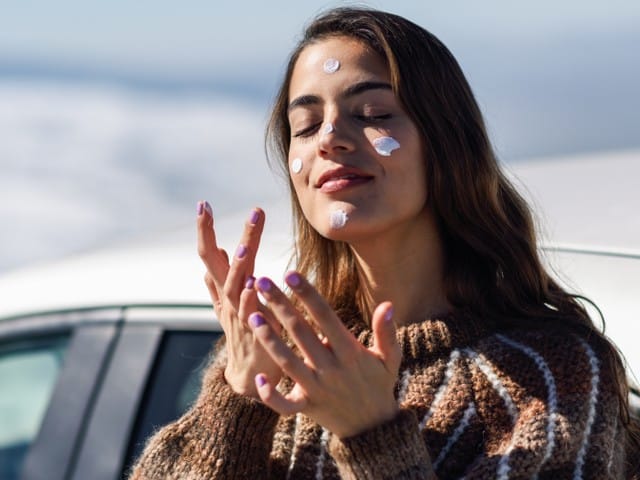Best Defense Against Skin Damage
In a world filled with ever-increasing pollution and harmful UV rays, taking care of your skin has become more important than ever. Skin damage, premature aging, and the risk of skin cancer are constant threats that we face daily. To shield ourselves against these threats, sunscreen stands as our best defense. In this comprehensive guide, we will delve into the world of sunscreen, exploring its significance, types, application, and much more. By the time you finish reading, you’ll be well-equipped to make informed choices about your skin’s protection.
The Importance of Sunscreen
Sunscreen is not just a cosmetic product; it is a vital tool in preserving your skin’s health. Here are some compelling reasons why sunscreen should be a non-negotiable part of your daily skincare routine:
1. Shield Against Harmful UV Rays
The sun emits two types of harmful ultraviolet (UV) rays: UVA and UVB. UVA rays penetrate deep into the skin, causing premature aging and wrinkles. UVB rays primarily affect the outer layer of the skin and are responsible for sunburn. Sunscreen acts as a protective barrier, preventing these rays from causing damage.
2. Reduces Skin Cancer Risk
Prolonged exposure to UV radiation is a major risk factor for skin cancer. By using sunscreen, you significantly reduce this risk, as it blocks the harmful UV rays that can lead to the development of skin cancer.
3. Maintains Youthful Skin
Sunscreen not only protects your skin from damage but also helps maintain its youthful appearance. Regular use of sunscreen can prevent the formation of age spots, fine lines, and wrinkles.
4. Minimizes Hyperpigmentation
Sunscreen plays a crucial role in preventing hyperpigmentation, which includes issues like melasma and uneven skin tone. It inhibits the overproduction of melanin, the pigment responsible for dark spots.
5. Supports Skin Healing
If you have existing skin conditions or are recovering from a skin treatment, sunscreen is essential. It prevents further irritation and aids in the healing process.
Choosing the Right Sunscreen
Selecting the right sunscreen is crucial for effective protection. Here are some key factors to consider:
1. Sun Protection Factor (SPF)
SPF measures a sunscreen’s ability to protect your skin from UVB rays. For everyday use, SPF 30 is generally recommended. However, if you’ll be exposed to intense sunlight for an extended period, opt for a higher SPF.
2. Broad-Spectrum Protection
Ensure your sunscreen provides broad-spectrum protection, shielding your skin from both UVA and UVB rays.
3. Water Resistance
If you plan to be in the water or sweat excessively, choose a water-resistant sunscreen to maintain its effectiveness.
4. Skin Type
Consider your skin type when selecting sunscreen. Some formulations are better suited for oily skin, while others are designed for dry or sensitive skin.
5. Special Requirements
If you have specific skincare needs, such as acne-prone skin or the desire for an eco-friendly product, there are sunscreens tailored to these requirements.
How to Apply Sunscreen
Proper application of sunscreen is just as crucial as choosing the right product. Here’s how to do it effectively:
1. Quantity Matters
Use an ample amount of sunscreen – about a shot glass worth – to ensure proper coverage.
2. Apply 15 Minutes Before Sun Exposure
Allow the sunscreen to be absorbed by your skin by applying it at least 15 minutes before going outdoors.
3. Reapply Regularly
Reapply sunscreen every two hours, or more frequently if you’re swimming or sweating.
4. Don’t Forget Often-Missed Areas
Remember to apply sunscreen to commonly overlooked areas, such as your ears, the back of your neck, and the tops of your feet.
5. Lip Balm with SPF
Don’t forget to protect your lips with a lip balm that contains SPF.

Sunscreen and Your Daily Routine
Incorporating sunscreen into your daily routine is easy. It should be the final step after your skincare regimen. Here’s how it fits in:
- Cleanser: Begin with cleansing your face to remove dirt and oils.
- Toner: Apply a toner to balance your skin’s pH.
- Serum: Use your chosen serums for targeted skin needs.
- Moisturizer: Apply a suitable moisturizer.
- Sunscreen: Finish with a generous application of sunscreen.
Conclusion
Sunscreen is indeed your best defense against skin damage, offering protection, maintaining skin health, and preserving your youthful appearance. By selecting the right sunscreen and following proper application techniques, you can ensure that your skin remains healthy and radiant. Don’t wait; make sunscreen an essential part of your daily skincare routine and shield yourself from the harmful effects of the sun. For additional tips and information about the best glutathione UK, be sure to visit their page to learn more.


